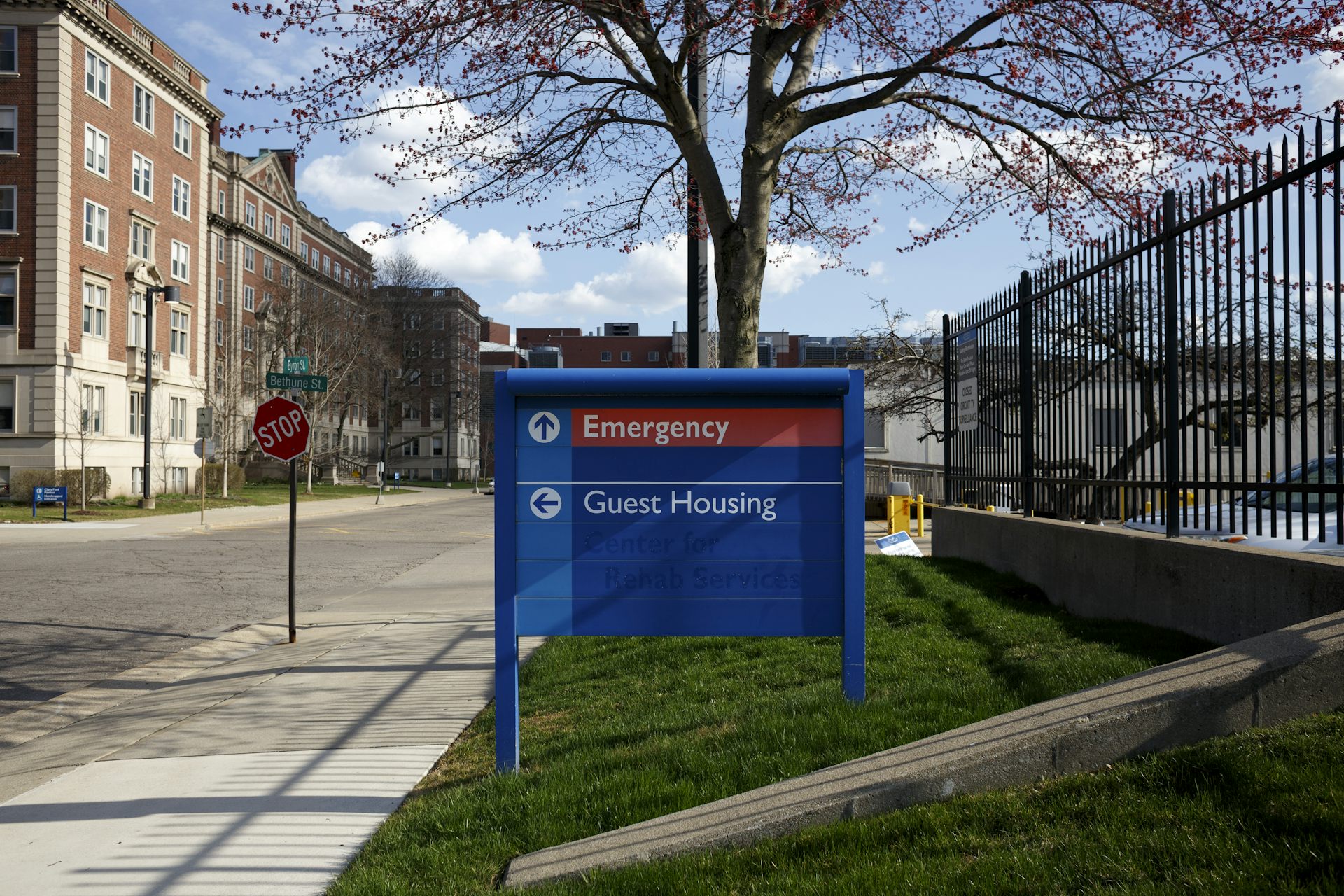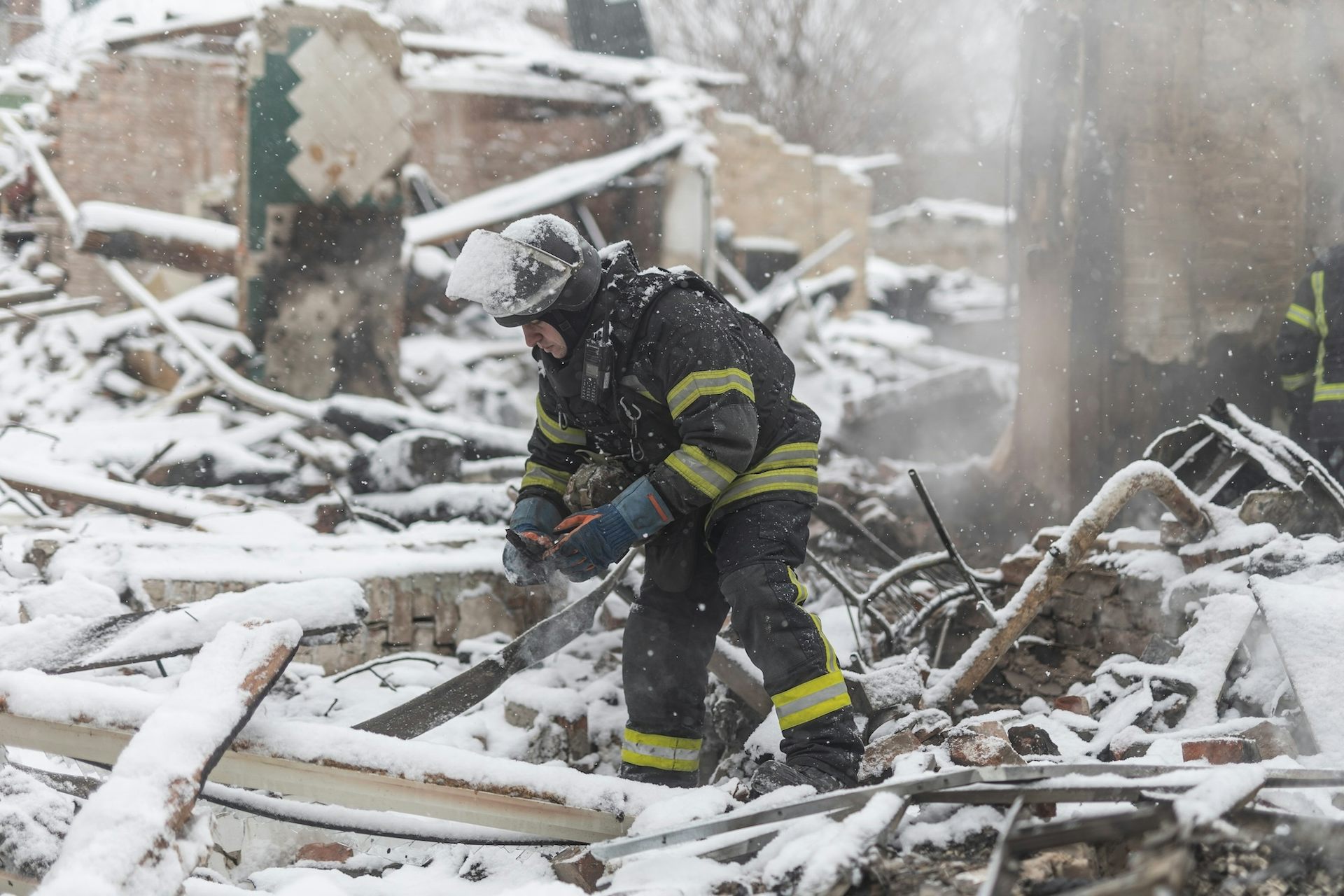Mexican president suffers setback in country's deadliest election in decades
Thirty-six candidates were murdered since campaigning began in Mexico last September, including numerous members of the president's own Morena party.
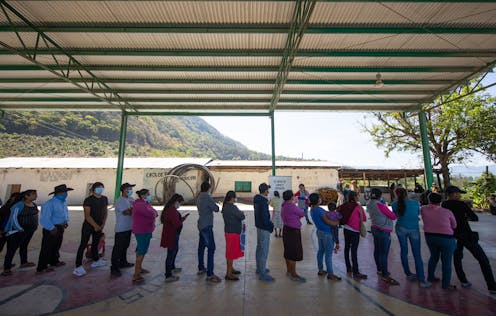
Mexicans turned away from President Andrés Manuel López Obrador’s party in the country’s June 6, 2021, midterm election, widely seen as a referendum on his administration’s self-proclaimed “transformation” of Mexico.
López Obrador had hoped to secure the two-thirds congressional supermajority required to usher through constitutional amendments uncontested. Instead, preliminary results indicate his Morena party will lose 50 to 60 seats in Mexico’s lower house of Congress. Morena currently holds 253 of the 500 seats but effectively controls 332 seats because of its alliances, mainly with the Labor Party and the scandal-plagued Green Party – which despite its name shows little interest in environmental matters.
Morena holds 60% of seats in the Mexican Senate, which weren’t up for election this year.
This was the largest election in Mexican history, both in voting population and candidacies. Some 94 million Mexicans cast ballots for 21,368 public officials. All 500 seats in the lower house of Congress were up for grabs, as were 15 governorships, 1,923 mayoralties and thousands of other local posts.
It was also Mexico’s deadliest election in recent history.
According to the Etellekt consulting firm, 89 politicians, including 36 candidates, were murdered since campaigning began last September. Hundreds more candidates were threatened or attacked. Nearly 200 poll sites were shuttered in the states of Chiapas and Oaxaca because officials there said they could not guarantee the safety of voters.
A bloody race
The main opposition that dented Morena’s dominance was a coalition of Mexico’s three traditional parties: the right-wing Revolutionary Institutional Party, center-right National Action Party and leftist Party of the Democratic Revolution. The Citizen’s Movement, a social-democratic party, competed independently.
Morena performed well at the state level and is leading in 10 of 15 gubernatorial races. But it suffered heavy losses in Mexico City, a bulwark of the Mexican left.
López Obrador won the presidency in 2018 in a landslide, after promising to put “Mexico’s poor first” and “pacify” the country, which consistently has among the world’s highest murder rates.
Instead, he has overseen rising poverty and the most violent period of Mexican history, with an average of 97 people murdered every day.
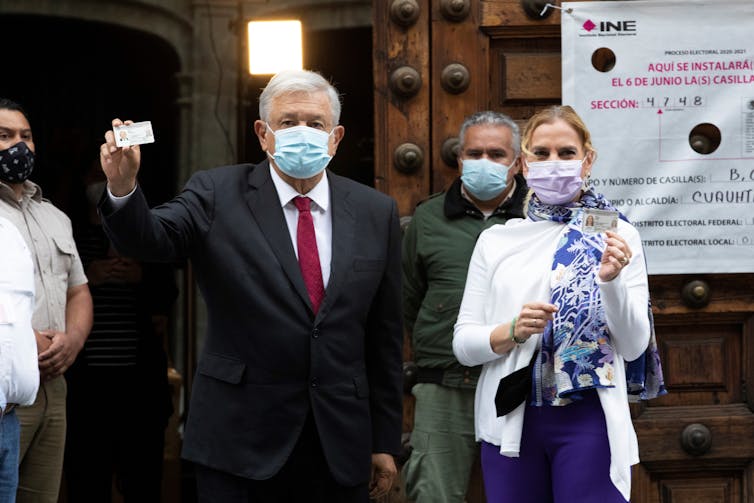
Mexico’s crime wave began well before the López Obrador administration, with President Felipe Calderon’s 2006 declaration of a “war on cartels” that got the military involved in civilian law enforcement.
Rather than follow through on his creative campaign pledges to reduce violence, López Obrador has continued his predecessors’ drug war, expanding the military’s involvement in law enforcement despite its dismal record of human rights abuses in that job.
Most electoral violence seen during the midterm election season occurred in the cartel-dominated Mexican states of Guerrero, Veracruz and Oaxaca. There, criminal groups often offer local public servants and candidates the infamous choice of “silver or lead,” which translates to “plata o plomo.” In other words, take a bribe or get shot.
Seventy-five percent of the attacks against politicians or candidates this election season were against local officials. Municipal leaders are appealing targets because criminal groups can intimidate lower-level officials into handing over parts of municipal budgets or calling off local police.
Campaigning at press conferences
Out of 89 murdered politicians, 25 were members of Morena’s coalition. Even so, López Obrador dismisses reports on Mexico’s electoral violence as media sensationalism.
In his June 2 daily press conference, he said Mexicans “do not live in a perfect society” but claimed “peace and tranquility” reign.
The president’s morning press conferences, which can last for up to three hours, frequently include diatribes against the reporters asking him questions, attacks on feminism and accusations against human rights organizations. He also uses press conferences to attack his political opponents.
The Mexican Constitution and electoral laws prohibit public officials from using the government machinery to promote themselves or their political allies during elections.
After Mexico’s National Electoral Institute told the president to avoid commenting on election-related topics at press conferences, he said the order amounted to censorship. He successfully challenged it before the Mexican electoral court.
Such moves have polarized the Mexican electorate.
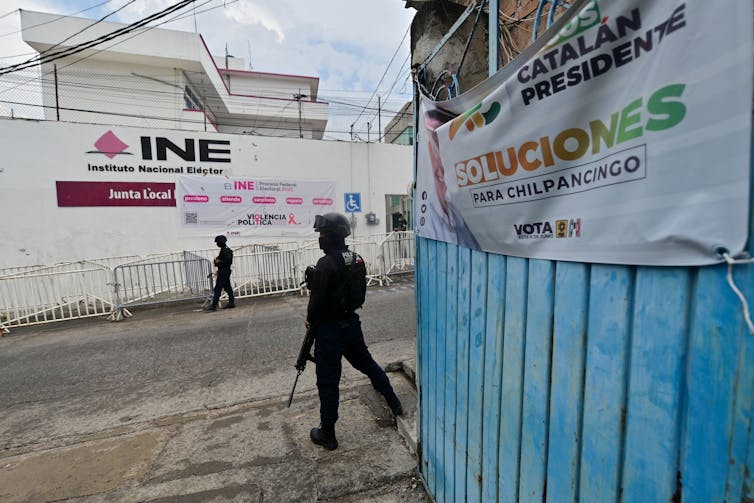
López Obrador maintains the support of 57% of Mexicans, who crave the promised “transformation” of their long-struggling nation. But many civil society leaders and intellectuals perceive an authoritarian bent in the president’s combative rhetoric and policy agenda.
Since 2018, Morena has introduced 29 constitutional amendments and approved 289 legislative changes. Many have concentrated more power in the presidency and subjected other parts of Mexico’s federal bureaucracy to severe austerity.
Critics say López Obrador is creating a government grounded on his charisma and desires, without traditional checks and balances, and weakening Mexico’s democratic institutions.
They cite, for example, a court reform billed as preventing corruption and nepotism in the judiciary that unexpectedly and controversially extended for two years the term of Supreme Court Chief Justice Arturo Zaldívar, a vocal López Obrador ally.
Critics claim this maneuver violates the constitution and undermines judicial independence.
Other Morena legislation raises privacy concerns. A legislative reform passed this year requires cellphone companies to gather users’ identification and biometric data, like eye scans, and turn it over to the government.
Simultaneously, Morena has vowed to abolish the National Institute for Access to Information, a government watchdog that monitors federal spending and investigates abuses against personal privacy.
[Understand what’s going on in Washington. Sign up for The Conversation’s Politics Weekly.]
The president also threatened to abolish the National Electoral Institute after it rebuked him for electioneering at his morning press conferences.
‘To hell with their institutions’
In 2006, López Obrador ran for president and lost by 0.56 percentage points to the centrist National Action Party candidate Felipe Calderón. He cried fraud and contested the result.
“To hell with their institutions!” he said after the federal electoral court confirmed Calderón’s victory.
It was López Obrador’s first of two failed presidential runs.
Now, he’s president. But López Obrador still seems convinced that the institutions of Mexican democracy – its independent judiciary, its election watchdogs, its budget monitors – are against him.
Mexican voters had the option to strengthen López Obrador’s grasp on power. But they used the midterms to maintain democratic constraints on the presidency, checking an ambitious president’s legislative agenda.
Luis Gómez Romero does not work for, consult, own shares in or receive funding from any company or organization that would benefit from this article, and has disclosed no relevant affiliations beyond their academic appointment.
Read These Next
Not all mindfulness is the same – here’s why it matters for health and happiness
Mindfulness is taught everywhere, from schools to workplaces. But scientists define and measure it in…
Should medical marijuana be less stringently regulated? A drug policy expert explains what’s at stak
The proposed rescheduling of marijuana could have far-reaching implications in science, medicine and…
Innovations in asthma care can improve the health of Detroiters living with this chronic disease
Detroiters are hospitalized for asthma four times more often than Michigan residents overall. A proactive…




